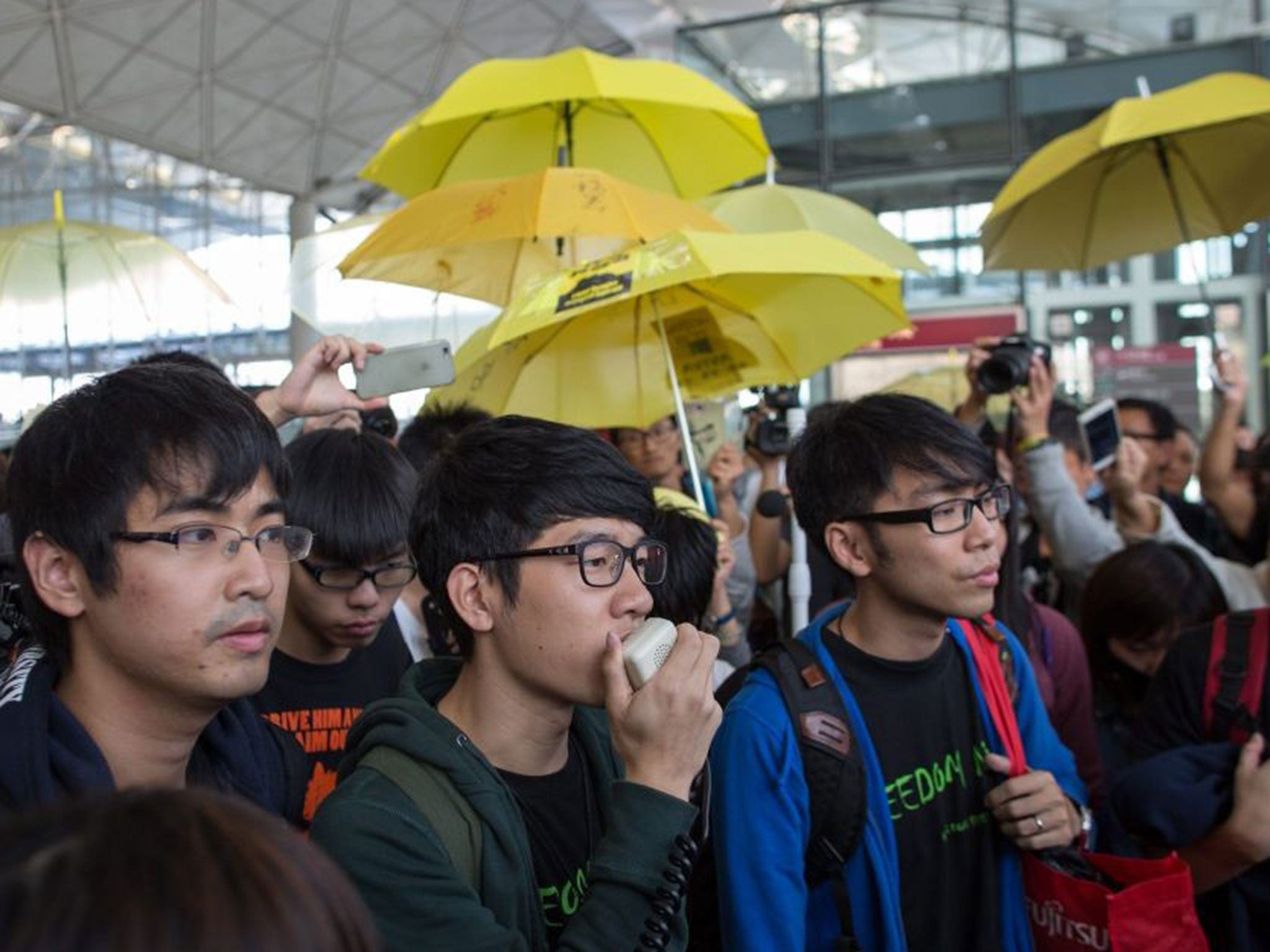Hong Kong protests: Fifty days on, demonstrators' 'new style of protest' results in occupation 'commune'
The site in the city's political and financial hub boasts a 24-hour library, an organic vegetable patch and people weaving blankets

A few yards from the People's Liberation Army's Hong Kong base, there is a 20ft-high barricade made of bamboo, wooden pallets and stolen traffic barriers, across which hangs a yellow-and-black sign reading: "Welcome to the Hong Kong commune."
And "commune" now seems the only apt word for the occupation of the city's political and financial hub, which today enters its 50th day. As the tear gas cleared shortly after midnight on 28 September, few – if any – thought the occupation would last until dawn, let alone mid-November. What was then just a crowd sitting in the road, now has an air of permanence and sustainability, with hundreds of tents on the tarmac. It also has two large offshoots in the Mong Kok and Causeway Bay districts.
"I'm constantly surprised by the tenacity of Hong Kong people," said Hang Tung, a 29-year-old student who was spared the tear gas because she was arrested at initial student protests against Beijing's restrictive framework for electing the city's next leader. "[The protest] is deemed unlawful, and still people come to support. It's given us great hope," she said.
In recent days Xi Jinping, China's president, labelled the protests "illegal", and said "law and order must be maintained".
The Admiralty site boasts a free, busy, 24-hour library. Here, people charge phones with power generated from an exercise bike. There's an organic vegetable patch, people weaving blankets, and one woman making Lego reconstructions of the defining moments of the protesters' struggle so far.
Social worker Ellen Yau, 32, has been at the site on and off for its duration. "People are trying to use their abilities to promote the ideas", she said. It is a "new style of protest". The occupiers have constantly demanded to nominate their own candidates to succeed the Chief Executive, Leung Chun-ying, in 2017.
They also want Mr Leung to step down over his handling of the political crisis. But the government has remained equally rigid, condemning the "unlawful" occupation.
Yesterday, away from Admiralty – the eastern part of the business district – three members of the Federation of Students, one of the groups unofficially leading the movement, were barred from a flight to Beijing. They had hoped to take their demands to the Chinese premier, Li Keqiang.
Alex Chow, Eason Chung and Nathan Law were denied boarding permits for the Cathay Pacific flight because their return permits were invalidated. In a news conference later, the student leaders said annulling their travel documents deprives them of their rights to enter the country's territory. "It symbolises that Hong Kong people's right to determine their destiny will be taken away in the future," Mr Chow said.
Carrie Lam, chief secretary for the Hong Kong administration, said it was unnecessary for the students to petition Beijing and that the central leadership of the ruling Communist Party "is fully aware of the different appeals".
For the protests the end could be nigh, as local transport firms have won injunctions against the occupations in Admiralty and Mong Kok, meaning that anyone who resists bailiffs looking to clear the sites can be arrested.
Another camper, Edmund Szeto, an IT worker, said "no one expected" to see the protests last so long. A group of volunteers was yesterday canvassing opinion from the protesters about what they want and how they should get it. On a notice board asking people how long they would stick around, some gave complex answers, but many kept it brief, simply scrawling the mathematical symbol for infinity.
And one nearby sign, which one protester had stood up next to their tent, might reveal something of the stubbornness which has sustained the occupiers so far. It read: "If we lose this battle, we lose our dignity – Fight on."
Subscribe to Independent Premium to bookmark this article
Want to bookmark your favourite articles and stories to read or reference later? Start your Independent Premium subscription today.

Join our commenting forum
Join thought-provoking conversations, follow other Independent readers and see their replies